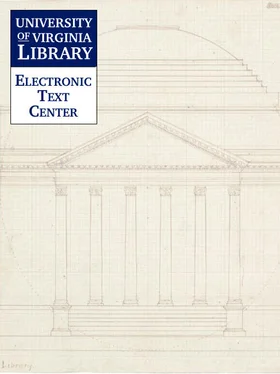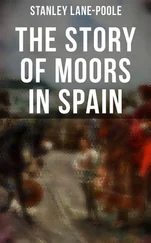Hendrik Loon - The Story of Mankind
Здесь есть возможность читать онлайн «Hendrik Loon - The Story of Mankind» весь текст электронной книги совершенно бесплатно (целиком полную версию без сокращений). В некоторых случаях можно слушать аудио, скачать через торрент в формате fb2 и присутствует краткое содержание. Год выпуска: 2000, Издательство: Electronic Text Center. University of Virginia Library., Жанр: Старинная литература, на английском языке. Описание произведения, (предисловие) а так же отзывы посетителей доступны на портале библиотеки ЛибКат.
- Название:The Story of Mankind
- Автор:
- Издательство:Electronic Text Center. University of Virginia Library.
- Жанр:
- Год:2000
- ISBN:нет данных
- Рейтинг книги:3 / 5. Голосов: 1
-
Избранное:Добавить в избранное
- Отзывы:
-
Ваша оценка:
- 60
- 1
- 2
- 3
- 4
- 5
The Story of Mankind: краткое содержание, описание и аннотация
Предлагаем к чтению аннотацию, описание, краткое содержание или предисловие (зависит от того, что написал сам автор книги «The Story of Mankind»). Если вы не нашли необходимую информацию о книге — напишите в комментариях, мы постараемся отыскать её.
The Story of Mankind — читать онлайн бесплатно полную книгу (весь текст) целиком
Ниже представлен текст книги, разбитый по страницам. Система сохранения места последней прочитанной страницы, позволяет с удобством читать онлайн бесплатно книгу «The Story of Mankind», без необходимости каждый раз заново искать на чём Вы остановились. Поставьте закладку, и сможете в любой момент перейти на страницу, на которой закончили чтение.
Интервал:
Закладка:
THE STORY OF MANKIND
BY HENDRIK VAN LOON, AB. PH.D.
Professor of the Social Sciences in Antioch College.
Author of The Fall of the Dutch Republic, The Rise of the Dutch
Kingdom, The Golden Book of the Dutch Navigators,
A Short Story of Discovery, Ancient Man.
----
This book is fully illustrated with eight three-color
pages, over one hundred black and white pictures and
numerous animated maps and half-tones drawn by the
author.
THE STORY OF MANKIND
BY
HENDRIK VAN LOON
BONI AND LIVERIGHT
1921
First Printing, November, 1921
Second Printing, December, 1921
Third Printing, January, 1921
Fourth Printing, February, 1921
Fifth Printing, February, 1921
THE STORY OF MANKIND
----
COPYRIGHT, 1921, BY
BONI & LIVERIGHT, INC.
----
Copyright all countries
----
Printed in the United States of America
To JIMMIE
``What is the use of a book without pictures?'' said Alice.
FOREWORDFor Hansje and Willem:
WHEN I was twelve or thirteen years old, an uncle of mine who gave me my love for books and pictures promised to take me upon a memorable expedition. I was to go with him to the top of the tower of Old Saint Lawrence in Rotterdam.
And so, one fine day, a sexton with a key as large as that of Saint Peter opened a mysterious door. ``Ring the bell,'' he said, ``when you come back and want to get out,'' and with a great grinding of rusty old hinges he separated us from the noise of the busy street and locked us into a world of new and strange experiences.
For the first time in my life I was confronted by the phenomenon of audible silence. When we had climbed the first flight of stairs, I added another discovery to my limited knowledge of natural phenomena--that of tangible darkness. A match showed us where the upward road continued. We went to the next floor and then to the next and the next until I had lost count and then there came still another floor, and suddenly we had plenty of light. This floor was on an even height with the roof of the church, and it was used as a storeroom. Covered with many inches of dust, there lay the abandoned symbols of a venerable faith which had been discarded by the good people of the city many years ago. That which had meant life and death to our ancestors was here reduced to junk and rubbish. The industrious rat had built his nest among the carved images and the ever watchful spider had opened up shop between the outspread arms of a kindly saint.
The next floor showed us from where we had derived our light. Enormous open windows with heavy iron bars made the high and barren room the roosting place of hundreds of pigeons. The wind blew through the iron bars and the air was filled with a weird and pleasing music. It was the noise of the town below us, but a noise which had been purified and cleansed by the distance. The rumbling of heavy carts and the clinking of horses' hoofs, the winding of cranes and pulleys, the hissing sound of the patient steam which had been set to do the work of man in a thousand different ways--they had all been blended into a softly rustling whisper which provided a beautiful background for the trembling cooing of the pigeons.
Here the stairs came to an end and the ladders began. And after the first ladder (a slippery old thing which made one feel his way with a cautious foot) there was a new and even greater wonder, the town-clock. I saw the heart of time. I could hear the heavy pulsebeats of the rapid seconds--one--two--three-- up to sixty. Then a sudden quivering noise when all the wheels seemed to stop and another minute had been chopped off eternity. Without pause it began again--one--two--three--until at last after a warning rumble and the scraping of many wheels a thunderous voice, high above us, told the world that it was the hour of noon.
On the next floor were the bells. The nice little bells and their terrible sisters. In the centre the big bell, which made me turn stiff with fright when I heard it in the middle of the night telling a story of fire or flood. In solitary grandeur it seemed to reflect upon those six hundred years during which it had shared the joys and the sorrows of the good people of Rotterdam. Around it, neatly arranged like the blue jars in an old-fashioned apothecary shop, hung the little fellows, who twice each week played a merry tune for the benefit of the country-folk who had come to market to buy and sell and hear what the big world had been doing. But in a corner--all alone and shunned by the others--a big black bell, silent and stern, the bell of death.
Then darkness once more and other ladders, steeper and even more dangerous than those we had climbed before, and suddenly the fresh air of the wide heavens. We had reached the highest gallery. Above us the sky. Below us the city-- a little toy-town, where busy ants were hastily crawling hither and thither, each one intent upon his or her particular business, and beyond the jumble of stones, the wide greenness of the open country.
It was my first glimpse of the big world.
Since then, whenever I have had the opportunity, I have gone to the top of the tower and enjoyed myself. It was hard work, but it repaid in full the mere physical exertion of climbing a few stairs.
Besides, I knew what my reward would be. I would see the land and the sky, and I would listen to the stories of my kind friend the watchman, who lived in a small shack, built in a sheltered corner of the gallery. He looked after the clock and was a father to the bells, and he warned of fires, but he enjoyed many free hours and then he smoked a pipe and thought his own peaceful thoughts. He had gone to school almost fifty years before and he had rarely read a book, but he had lived on the top of his tower for so many years that he had absorbed the wisdom of that wide world which surrounded him on all sides.
History he knew well, for it was a living thing with him. ``There,'' he would say, pointing to a bend of the river, ``there, my boy, do you see those trees? That is where the Prince of Orange cut the dikes to drown the land and save Leyden.'' Or he would tell me the tale of the old Meuse, until the broad river ceased to be a convenient harbour and became a wonderful highroad, carrying the ships of De Ruyter and Tromp upon that famous last voyage, when they gave their lives that the sea might be free to all.
Then there were the little villages, clustering around the protecting church which once, many years ago, had been the home of their Patron Saints. In the distance we could see the leaning tower of Delft. Within sight of its high arches, William the Silent had been murdered and there Grotius had learned to construe his first Latin sentences. And still further away, the long low body of the church of Gouda, the early home of the man whose wit had proved mightier than the armies of many an emperor, the charity-boy whom the world came to know as Erasmus.
Finally the silver line of the endless sea and as a contrast, immediately below us, the patchwork of roofs and chimneys and houses and gardens and hospitals and schools and railways, which we called our home. But the tower showed us the old home in a new light. The confused commotion of the streets and the market-place, of the factories and the workshop, became the well-ordered expression of human energy and purpose. Best of all, the wide view of the glorious past, which surrounded us on all sides, gave us new courage to face the problems of the future when we had gone back to our daily tasks.
History is the mighty Tower of Experience, which Time has built amidst the endless fields of bygone ages. It is no easy task to reach the top of this ancient structure and get the benefit of the full view. There is no elevator, but young feet are strong and it can be done.
Читать дальшеИнтервал:
Закладка:
Похожие книги на «The Story of Mankind»
Представляем Вашему вниманию похожие книги на «The Story of Mankind» списком для выбора. Мы отобрали схожую по названию и смыслу литературу в надежде предоставить читателям больше вариантов отыскать новые, интересные, ещё непрочитанные произведения.
Обсуждение, отзывы о книге «The Story of Mankind» и просто собственные мнения читателей. Оставьте ваши комментарии, напишите, что Вы думаете о произведении, его смысле или главных героях. Укажите что конкретно понравилось, а что нет, и почему Вы так считаете.












